Phrasal Verbs and Idioms Upper Intermediate by Graham Workman
Phrasal Verbs and Idioms Upper Intermediate

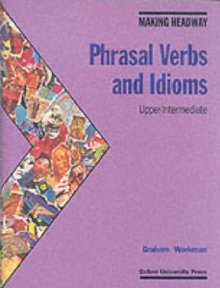
Students of English realize very early on in their learning career that
prepositions present a problem. They collocate with nouns. adjectives.
past participles, and verbs, without rules or logic. Students simply have to
learn that interested is followed by in, and good is followed by a t . and go
home has no preposition. Multi-word verbs, or phrasal verbs as they are
often referred to, present a very special problem. English can make verb
and particle (preposition or adverb) combinations easily and freely. The
word particle has been used throughout this book, in order to avoid
having to make the adverb/preposition distinction (to most students. the
word after the verb in a multi-word verb is always a preposition).
Multi-word verbs exist throughout the language. They express everyday
actions such as Turn on the light: they can also have a variety of
meanings such as Things worked out well. W e worked out the problem. She worked out in the gym, I’ve never been able to work him out. and The find price works out at f 10.
Given the complexity of the area. the surprise is that learners are very
keen to master it. They seem to sense that multi-word verbs are a vital
component of English, and spoken English in particular. There is also the
feeling that an understanding of common idioms will increase their
comprehension, though most students instinctively avoid trying to
produce them. The best time to address these areas is at upper-intermediate and advanced levels, when students already have a
certain grammatical and lexical foundation.
This book goes a long way to helping students to unravel the complexity
of multi-word verbs, preposition and adverb collocations. and idiomatic
expressions. Students will find staged guidance in understanding the
systems, and are given a variety of exercise practice in recognition and
production. Phrasal Verbs and Idioms will find its place in self-access
centres, for learners to study on their own: and teachers will welcome the
texts, listenings, explanations, and exercises. which hare clear aims and
are highly accessible for thorough classroom exploitation
Graham Workman is a Freelance Teacher Trainer, Teacher, and materials writer, who runs courses for Teachers in the UK, Switzerland and Europe.
At present he is working with CLIL teachers in Switzerland, running training courses in England, Switzerland and other European countries for teachers of Primary, Secondary and CLIL classes, as well as working on books for CLIL teachers, Popular Films for Language Use 4, a book of materials for using documentary films in the classroom, and Secondary English Lesson Materials, a book of materials for Secondary Teachers of English.
He has spoken at numerous conferences for IATEFL and ETAS, and he regularly runs seminars /workshops throughout Europe.

Making Headway: Phrasal Verbs and Idioms Upper-Intermediate
BROWSE THE EBOOK

IF YOU ARE INTERESTED IN BUYING THIS BOOK, CLICK ON THE BUTTON BELOW


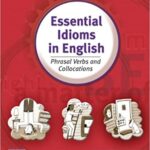
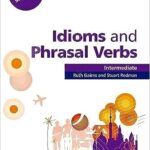
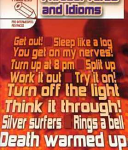
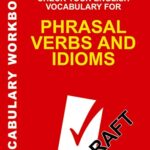
Dear:sir/madam
I am learing English, please send me Top 1000 Pharsal verbs by a email
We apologise but we cannot due to copyright restrictions